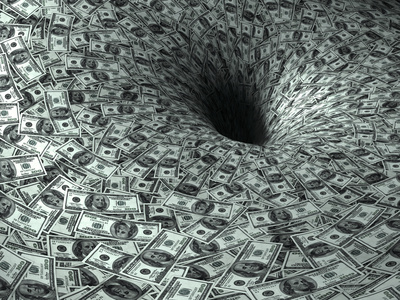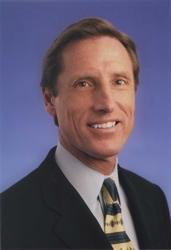Time for Outrage
One of my favorite bumper stickers reads, "If you're not outraged, you're not paying attention."

One of my favorite bumper stickers reads, "If you're not outraged, you're not paying attention."
Submitted by Anne Landman on
 Internal emails obtained by the UK Guardian show that British government officials colluded with nuclear power companies in the aftermath of the Fukushima Daiichi disaster to develop a PR strategy to downplay the severity of the event. Emails show the British government initiated contact with the nuclear industry about the debacle just two days after the earthquake and tsunami hit, and well before anyone knew the full extent of the disaster. The emails show close collusion between the power companies Westinghouse, EDF Energy, Areva and the UK government's Office of Business, Innovation and Skills (BIS) to try to ensure that the disaster in Japan wouldn't interrupt plans to build new nuclear power plants in Great Britain. In one email, an official in the BIS department expressed concern that the Fukushima disaster had "the potential to set the nuclear industry back globally," and wrote "We need to ensure the anti-nuclear chaps and chapesses do not gain ground on this. We need to occupy the territory and hold it. We really need to show the safety of nuclear." The business department argued that Fukushima was "not as bad as the 'dramatic' TV pictures made it look." An official, whose name has been blacked out, told Areva "We need to quash any stories trying to compare this to Chernobyl." You can read all 136 pages of the emails here.
Internal emails obtained by the UK Guardian show that British government officials colluded with nuclear power companies in the aftermath of the Fukushima Daiichi disaster to develop a PR strategy to downplay the severity of the event. Emails show the British government initiated contact with the nuclear industry about the debacle just two days after the earthquake and tsunami hit, and well before anyone knew the full extent of the disaster. The emails show close collusion between the power companies Westinghouse, EDF Energy, Areva and the UK government's Office of Business, Innovation and Skills (BIS) to try to ensure that the disaster in Japan wouldn't interrupt plans to build new nuclear power plants in Great Britain. In one email, an official in the BIS department expressed concern that the Fukushima disaster had "the potential to set the nuclear industry back globally," and wrote "We need to ensure the anti-nuclear chaps and chapesses do not gain ground on this. We need to occupy the territory and hold it. We really need to show the safety of nuclear." The business department argued that Fukushima was "not as bad as the 'dramatic' TV pictures made it look." An official, whose name has been blacked out, told Areva "We need to quash any stories trying to compare this to Chernobyl." You can read all 136 pages of the emails here.
At the end of May, as the Wisconsin Joint Finance Committee (JFC) worked day after day and late into the night voting on changes and amendments to the state budget bill, Joint Finance Co-Chair Alberta Darling (R-River Falls) quietly slipped a small provision into the massive budget bill that has received little attention.
 More and more Americans are falling victim to one of the most insidious bait-and-switch schemes in U.S. history. As they do, health insurance executives and company shareholders are getting richer and richer. This industry-wide plot explains how health insurers have been able to reap record profits during the recent recession as the ranks of the uninsured and underinsured continue to swell.
More and more Americans are falling victim to one of the most insidious bait-and-switch schemes in U.S. history. As they do, health insurance executives and company shareholders are getting richer and richer. This industry-wide plot explains how health insurers have been able to reap record profits during the recent recession as the ranks of the uninsured and underinsured continue to swell.
It also explains why the insurance industry and its allies are pulling out all the stops to kill a measure in the California legislature that could protect state residents from losing their homes and being forced into bankruptcy if they get seriously sick or injured.
On June 2, the California Assembly passed AB 52, a bill that would give state regulators the authority to reject excessive health insurance rate increases. Similar legislation has been introduced in other state legislatures, but nowhere are the stakes higher than in California -- not only because AB 52 would allow the insurance commissioner to turn down requests for unjustifiably high rate hikes, but also because it would enable the commissioner to reject increases in deductibles as well.
Nowhere are health insurers working harder to thwart reforms that could save consumers billions of dollars than in California. One measure they are especially determined to kill is a bill that would give state regulators the authority to reject rate increases that are excessive or discriminatory.
The California Assembly passed a bill to do just that earlier this month over the intense opposition of insurers, including the state's biggest supposedly nonprofit health plans: Blue Shield of California and Kaiser Permanente.
If you haven't gotten much of a raise lately, it's probably because the extra money that might have been put in your paycheck instead went to your health insurer if you are enrolled in an employer-sponsored plan.
Many Americans haven't seen a pay increase of any kind because their employers can't both increase their wages and continue offering decent health care coverage. It has become an either-or for people like Zeke Zalaski, a factory worker in Bristol, Connecticut, who hasn't had a raise in years.
The global consulting firm McKinsey & Company set off a firestorm when it released a report last week suggesting that 30 percent of U.S. businesses will stop offering health care benefits to their employees after most of the provisions of the Affordable Care Act go into effect in 2014.
The White House was quick to challenge the validity of the report, noting that McKinsey has so far refused to provide any details of the methodology used to reach its conclusion. All McKinsey will say is that its report was based on a survey of 1,300 employers and "other proprietary research."
White House deputy chief of staff Nancy-Ann DeParle, who previously headed the president's office of health care reform, called it an "outlier" and cited other studies predicting that few if any employers would drop coverage because of the Affordable Health Care Act.
 MINNEAPOLIS — In his first-ever Netroots Nation appearance, former Democratic Wisconsin Sen. Russ Feingold asked the crowd to take back the Democratic Party and the U.S. government.
MINNEAPOLIS — In his first-ever Netroots Nation appearance, former Democratic Wisconsin Sen. Russ Feingold asked the crowd to take back the Democratic Party and the U.S. government.
"I fear the Democratic Party is in danger of losing its identity," Feingold said, asking the Netroots crowd to redouble its efforts.
Feingold decried shady strategies such as Priorities USA Action, a Democratic Super PAC that does not disclose all of its donors, telling the audience "we can win without selling our soul" and urging transparency.
Much of Feingold's speech focused on his fight to overturn the Citizens United decision, which he referred to as "lawless."
"Speech doesn't corrupt," Feingold said. "Money corrupts, and money isn't speech."
 Ever wonder what happens to the premiums you pay for your health insurance?
Ever wonder what happens to the premiums you pay for your health insurance?
You might be surprised to learn that more and more of the dollars you pay for coverage are being sucked into a kind of black hole.
It doesn't really disappear, of course. It just doesn't do you a bit of good -- unless, of course, you believe it is to your advantage that it ultimately winds up in the bank accounts of a few investors and insurance company executives, including those who have to power to deny coverage for potentially life-saving care.
 As the head of communications for two of the country's largest health insurers for almost 20 years, I recognize an orchestrated spin campaign when I see one. And boy, oh boy, did I see an award-winning one this week in San Francisco.
As the head of communications for two of the country's largest health insurers for almost 20 years, I recognize an orchestrated spin campaign when I see one. And boy, oh boy, did I see an award-winning one this week in San Francisco.
The supposedly nonprofit Blue Shield of California went to extraordinary lengths on Tuesday, June 7 to unveil its "bold move to address the health care affordability crisis" by pledging to limit its annual profit to no more than 2 percent of revenue. And not just going forward, mind you, but all the way back to 2010, when the nonprofit's profits were considerably more than 2 percent -- so much more that Blue Shield of California says it will refund $180 million to its policyholders.
Center for Media and Democracy (CMD)
520 University Ave, Ste 305 • Madison, WI 53703 • (608) 260-9713
CMD is a 501(c)(3) tax-exempt non-profit.
© 1993-2024